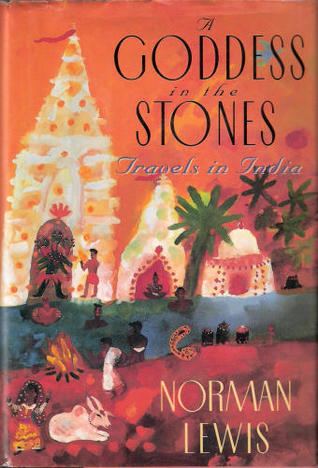

 |

|

The average rating for A goddess in the stones based on 2 reviews is 4 stars.
Review # 1 was written on 2017-05-28 00:00:00 New Rulz New RulzMy idea of a holiday is to go walking in a nice remote, quiet place where the chances of coming across another person is slim. To me, going to India would be hell, so many people, so much noise/colour/smell, it would be a sensory overload for me. So I'm always impressed when somebody visits there and has a great time, I'm more than happy to sit in my garden and read about other people's travels. This book is a great place to start to learn about areas of India people rarely visit, I was very surprised on just how many tribes there are that have had very little contact with the outside world, I thought that was just in remote hard-to-reach places in Jungles. Norman Lewis had visited the country a few times in his life and when he wrote this book he was in his early 80s, impressive of him to be undertaking this trip at that age, not the gentlest of things to undertake, once he got to the remote areas with rough roads it must have rattled his bones big time. The first half of the book he was visiting large towns/cities and you could see in his writing it was getting him down, very run down, the treatment of lower castes, the corrupt rich and neglect of the homeless. He seems to have enjoyed himself much more in the second half when he starts visiting the remote villages, much quieter...unless they had found something to celebrate. That is when things started to feel more like an adventure. The book is small part travel book and large part a study of the people. There are some very shocking facts that I knew nothing about, the act of Sati where a widow joins her dead husband on the funeral pyre, various religious events where people go crazy and sacrifice themselves to their God. I found the treatment of woman interesting, one tribe quite often marry 30yr old women and 15/16 yr old boys together, but they can't consummate the marriage until the boy has come of age, if the woman can't wait that long then it falls to her father-in-law to satisfy her. This was a real eye-opener for me, the version I read published by Eland had little illustrations at the start of each chapter, a real nice touch. My blog review is here. |
Review # 2 was written on 2017-05-30 00:00:00 Dimitrios Tagis Dimitrios TagisWhen people visit India, a country with over 1 billion people, their senses are assaulted by the mass of humanity, smells, colours and sights in a country that is full of life. The religions and spiritually of the country adds to the cacophony of noise as they go about celebrating the living and the dead. People from the Adivasi tribes that made up seven percent of the population of India. These peoples and the places they lived were in constant danger of being swamped by the remainder of India. This is Lewis account of his visit in the 1990’s to find these people and record the things that made them different and distinct. Lewis’ journey to see these tribes takes him away from the regular tourist haunts. Heading far from the beaten track to Orissa and Bihar in the north-western part of India, he reaches there at a time of heightened tensions and violence from a caste war. Seeking a local guide Lewis starts to venture into the jungles in search of the tribes that he wants to discover before the modern world subsumes them. He meets the Muria people who survive by eating crocodiles, monkey and insects, a tribe who marry their teenage boys off to older women. There are the Mundas who still hunt with bow and arrow, and who find laughter offensive and a tribe that may be related to Australian Aborigines and the Bonda who wear jewellery passed down from relatives and precious little else. His evocative writing style brings alive the assault on the senses that India is, you feel that you are there standing amongst the grime and swirl of people. The writing is detailed without being cumbersome and his ability to draw out the stories from the people of the tribes that he meets lifts this book from good to great. This is the first Norman Lewis book that I have read and it will not be the last. |
CAN'T FIND WHAT YOU'RE LOOKING FOR? CLICK HERE!!!